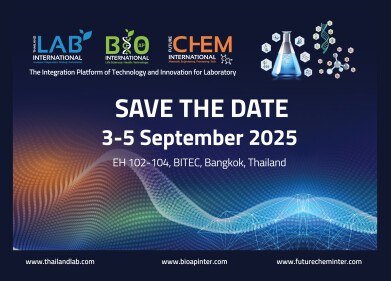-
 Oliver Waterhouse
Oliver Waterhouse -
 Anna Schuh
Anna Schuh -
 Vincent Smith
Vincent Smith
News & views
Company Launch brings Potential Sequencing Standard for Biopsy Analysis
Jun 16 2020
Base Genomics, a developer of epigenetic technology for early and sensitive detection of cancer from liquid biopsy, has launched with the potential to set a new gold standard in DNA methylation detection. The company, which has closed an oversubscribed seed funding round of $11 million USD (£9 million GBP) to progress development of its TAPS (TET-assisted pyridine borane sequencing) technology, is initially focused on developing a blood test for early-stage cancer and minimal residual disease. The funding round was led by Oxford Sciences Innovation and also included investors with industry expertise in genomics and oncology.
"In order to realise the potential of liquid biopsies for clinically meaningful diagnosis and monitoring, sensitive detection and precise quantification of circulating tumour DNA is paramount,” said CMO Anna Schuh. “Current approaches are not fit for purpose to achieve this, but Base Genomics has developed a game-changing technology which has the potential to make the sensitivity of liquid biopsies a problem of the past."
First developed at Ludwig Institute for Cancer Research Branch at the University of Oxford, TAPS is a novel chemical reaction that converts methylated cytosine to thymine under mild conditions. It is said to offer reduced sequencing costs as the reaction does not degrade DNA. “Genomic technologies with the power, simplicity and broad applicability of TAPS come along very infrequently,” said Base Genomics CTO Vincent Smith. “It has the potential to have an impact on epigenetics similar to that which Illumina’s SBS chemistry had on Next Generation Sequencing.”
“The ability to sequence a large amount of high-quality epigenetic information from a simple blood test could unlock a new era of preventative medicine,” said Base Genomics founder and CEO Oliver Waterhouse. “In the future, individuals will not just be sequenced once to determine their largely static genetic code, but will be sequenced repeatedly over time to track dynamic epigenetic changes caused by age, lifestyle and disease.”
Digital Edition
Lab Asia 31.6 Dec 2024
December 2024
Chromatography Articles - Sustainable chromatography: Embracing software for greener methods Mass Spectrometry & Spectroscopy Articles - Solving industry challenges for phosphorus containi...
View all digital editions
Events
Jan 22 2025 Tokyo, Japan
Jan 22 2025 Birmingham, UK
Jan 25 2025 San Diego, CA, USA
Jan 27 2025 Dubai, UAE
Jan 29 2025 Tokyo, Japan


















